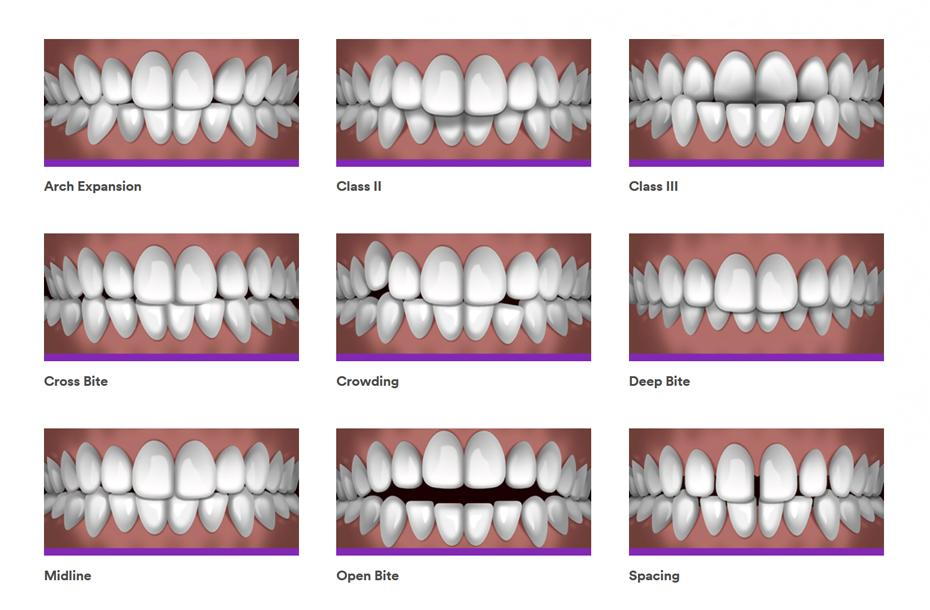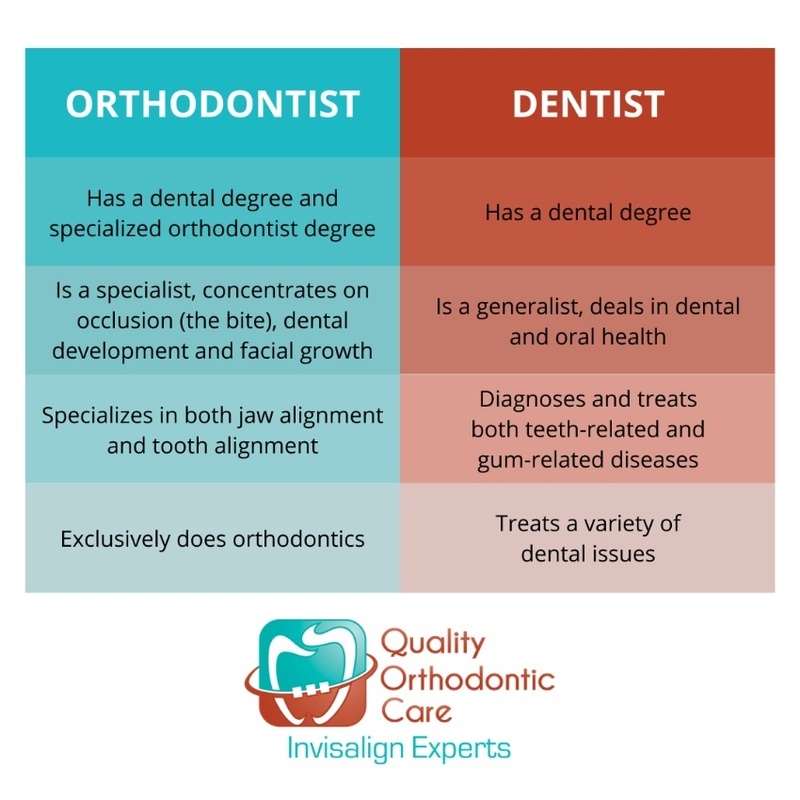All About Causey Orthodontics
All About Causey Orthodontics
Blog Article
The Single Strategy To Use For Causey Orthodontics
Table of Contents8 Simple Techniques For Causey OrthodonticsSome Known Details About Causey Orthodontics Unknown Facts About Causey OrthodonticsGet This Report about Causey OrthodonticsAn Unbiased View of Causey OrthodonticsCausey Orthodontics Things To Know Before You Get ThisThe Definitive Guide to Causey Orthodontics
What is the distinction between a dentist and an orthodontist? To address an inquiry that is commonly asked, both dentists and orthodontists aid patients acquire far better dental wellness, albeit in various means. It assists to bear in mind that dental care is an instead broad scientific research with different medical specializations. All dental experts, consisting of orthodontists, deal with the teeth, gum tissues, jaw and nerves.
You can believe of both doctors that deal with gum and teeth problems. The primary difference is that becoming an orthodontist requires a certain specialty in treating the imbalance of the teeth and jaw.
Some Known Details About Causey Orthodontics
An orthodontist is a dental practitioner that has undertaken training to specialize in the diagnosis, prevention and therapy of abnormalities in the jaw and teeth. They can likewise identify potential issues in teeth placement that might develop when conditions are left without treatment (emergency orthodontist near me).
This includes all the necessary education and learning to end up being a general dental professional. According to the American Pupil Dental Association (ASDA), it suggests you will need to have either a Medical professional of Medication in Dental Care (DMD) or a Physician of Oral Surgery (DDS). In other words, orthodontists require to complete dental college and then get an orthodontics specialized education and learning.
Some orthodontists likewise get their masters in craniofacial biology. These programs focus on 2 specific areas or self-controls: Dentofacial Orthopedics: This research study focuses on guiding teeth and jaw development.
See This Report on Causey Orthodontics

 The total goal of an orthodontist is to enhance an individual's bite. Not every person is birthed with straight teeth, and an orthodontist will make certain that clients obtain evenly spaced straight teeth.
The total goal of an orthodontist is to enhance an individual's bite. Not every person is birthed with straight teeth, and an orthodontist will make certain that clients obtain evenly spaced straight teeth.
6 Easy Facts About Causey Orthodontics Described
The American Association of Orthodontists suggests your first check up by age 7. You'll need to see your orthodontist if you have a misalignment in your teeth, likewise referred to as malocclusion. Additionally, if you notice irregular bite patterns, a slightly irregular jaw, or when your teeth are chock-full, you will likely need orthodontic treatment.
At Advanced Orthodontics, we offer people with a alternative treatment experience. In enhancement, we provide adjustable treatment schedules, versatile payment alternatives and an enjoyable, delightful experience. Phone call ( 480) 357-4900 today to find out more and routine a visit.
An orthodontist is a dentist educated to identify, avoid, and treat teeth and jaw abnormalities. Orthodontists function with people of all ages, from children to adults (https://sco.lt/85NXJw).
The Best Strategy To Use For Causey Orthodontics
Malocclusion, or misaligned teeth, can cause dental issues, including dental cavity, gum condition, and difficult or painful eating. Yet not everyone is born with straight teeth. If you have a negative bite or big rooms between your teeth, you may wish to seek advice from a dental expert focusing on orthodontic treatment.
(Picture Debt: DigitalVision/Getty Images) Orthodontists use dealt with and detachable oral gadgets, like dental braces, retainers, and bands, to change the position of teeth in your mouth. Orthodontic treatment is for dental abnormalities, including: Jagged teethBite problems, like an overbite or an underbiteCrowded teeth or teeth that are too much apartJaw misalignmentThe goal of orthodontic therapy is to boost your bite.
Causey Orthodontics Fundamentals Explained

All orthodontists are dental experts, yet not all dental practitioners are orthodontists. Orthodontic residency programs supply intensive, concentrated instruction for oral professionals. They concentrate on 2 locations: How to correctly and safely move teeth How to properly assist growth in the teeth, jaw, and faceOnce an orthodontist has completed training, they have the option to come to be board certified.
Misalignment, or malocclusion, is one of the most typical reason individuals see an orthodontist. It is genetic and is the outcome of dimension differences in between the upper and reduced jaw or in between the jaw and teeth. best orthodontist near me. Malocclusion causes tooth congestion, an askew jaw, or irregular bite patterns. Malocclusion is normally treated with: Your orthodontist attaches metal, ceramic, or plastic square bonds to your teeth.
Not known Factual Statements About Causey Orthodontics
Some individuals require a headgear to help move teeth right into line with stress from outside the mouth. A retainer is a personalized device that keeps your teeth in place.
Report this page